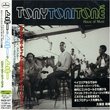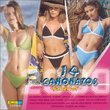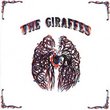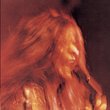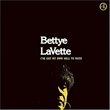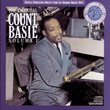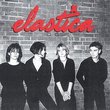| All Artists: Gil Scott-Heron Title: From South Africa to South Carolina (Reis) Members Wishing: 7 Total Copies: 0 Label: Tvt Original Release Date: 1/1/1976 Re-Release Date: 4/7/1998 Album Type: Original recording reissued, Original recording remastered Genres: International Music, Jazz, Special Interest, Pop, Rap & Hip-Hop, R&B Styles: Jazz Fusion, Vocal Jazz, Poetry, Spoken Word & Interviews, Vocal Pop, Old School, Pop Rap Number of Discs: 1 SwapaCD Credits: 1 UPC: 016581434028 |
Search - Gil Scott-Heron :: From South Africa to South Carolina (Reis)
 | Gil Scott-Heron From South Africa to South Carolina (Reis) Genres: International Music, Jazz, Special Interest, Pop, Rap & Hip-Hop, R&B
Gil-Scott Heron pulled few punches on this powerful 1975 release, his second effort with the Midnight Band. The jazz here ("Summer of '42," "Essex") is hard, flint-edged stuff, dipped in funk and Latin percussion. The ball... more » |
Larger Image |
CD DetailsSynopsis
Amazon.com Gil-Scott Heron pulled few punches on this powerful 1975 release, his second effort with the Midnight Band. The jazz here ("Summer of '42," "Essex") is hard, flint-edged stuff, dipped in funk and Latin percussion. The ballads ("Beginnings," "A Lovely Day") are pretty, and the lyrics (especially on "A Toast to the People") are potent. The Clash's Mick Jones, a fan of Scott-Heron's, once told Rolling Stone that "people would rather dance than fight wars," but "Johannesburg" and the nuclear-power-protesting "South Carolina (Barnwell)" prove you can do both at the same time. Bonus tracks include live versions of the latter as well as the in-your-face anthem "Let Me See Your I.D." from the 1985 Sun City project. --Michael Ruby Similar CDs
Similarly Requested CDs
|
CD ReviewsNot flashy but solid Tyler Smith | Denver, CO United States | 12/06/2003 (4 out of 5 stars) "Despite the '70s crowd-pleasing, anti-apartheid anthem, "Johannesburg", this album remains a bit of an obscurity in the discography of Gil Scott-Heron.Gil hit a nerve with street-inspired poetry and powerful rhythms that presaged rap on tunes like "Whitey on the Moon", "Brother", "The Bottle", and of course, "The Revolution Will Not Be Televised," which has become not only widely sampled, but even -- undeservedly -- reduced to something of a cliche. "South Africa to South Carolina" displays Gil's and Brian Jackson's lyrical side with ideas and rhythms more subtle than "Johannesburg."The strong lyricism is best illustrated by "Beginnings" and, especially, the disarming "A Lovely Day," which recalls, for me, the beautiful "Very Precious Time" from the great "Winter in America." Both of the tunes make me think of the "Doonesbury" line in which Mark, the hard-core ideologist, confesses, "Even revolutionaries like chocolate chip cookies." The revolutionary on this album shows his chocolate chip cookie side with "A Lovely Day," a song that this writer turned to often back in the day for solace during dark times.A bit of a hodge-podge in styles, and in some ways much a product of its times, this album may not be of use for all, but I still consider it a strong piece of work from a very important American artist whose name and contributions to the current scene should be kept alive." Have you heard the "word".. Peppino | 08/08/2002 (4 out of 5 stars) "..well, unfortunate, as of 2002, GSH was encarcerated,little publicized, of course-and another "voice of dissent" stilled.(temporarily, one hopes..)This cd release of his 2nd recording for Arista Records is very interesting, as it contains a nice 50/50 split of his Electric piano/African percussions driven jazz influences of his Flying Dutchman/Strata East recordings and the more "funky" and groove oriented things that followed.For me, the passion , both in GSH words, and his alternate firey rasp to gentle crooning in his vocals (although on this cd, nice lead and background vocals are also provided by bandmembers,with some intriguing harmonic intervals worthy of Eric Dolphy, very "outside")--some of his musics has driven me to being misty eyed through the years,"Pieces of A Man", Song for Bobby Smith", "Lady Day & John Coltrane", and many of the other compositions from the early days, and on this cd, the eloquent "A Toast to the People", and the simple Fender Rhodes piano acompaniment on "Lovely Day", and "Beginnings". (Honest, these compositions really tug at my heartstrings,it IS a sad and beautiful world, to parafrase Roberto Begnini, hehehe--and GSH captures this paradox in the uncompromising passiom of his musical/spiritual convictions.) The fire is turned up some degrees with the paen to the liberation of South Africa, "Johannesburg", and the homegrown problems discussed in "South Carolina.." funky stuff, and "Essex" which burns a jazz fire!Long time musical partner Brian Jackson's understated but fluent keyboard/piano/flute and arranging are augmented by the first(and for me, best) version of his "Midnite Band". Jazz/funk/spiritual sounds in the Gary Bartz NTU troop/ Lonnie Liston Smith bag. Although I prefer "winter in America", the quintessential GSH, this recording has a lotta heart!Personally, I prefer these simmering percolating sounds to the noisy rock n' roll ANY day of the week. Hot , passionate , the sounds of the heart blend with the sounds of the street! Food for the soul and feet!Glad one thousand times GSH musical output is so readily acessable on cd re-release!Viva GSH!" What's the word? Michael Stack | North Chelmsford, MA USA | 02/15/2006 (5 out of 5 stars) "The mid 1970s was an extraordinary period for Gil Scott-Heron, peaking in my assessment with "From South Africa to South Carolina". Having established his reputation as politically aggressive and relevent on his Flying Dutchman recordings and cooled off on "Winter in America", Scott-Heron and musical partner Brian Jackson assembled "The Midnight Band" for "The First Minute of the New Day". The band stayed intact for "From South Africa to South Carolina", and the strength of familiarity shows.
Perhaps the most notable is the ability for the three vocalists-- Scott-Heron, Jackson and Victor Brown, to harmonize together. Two and three part harmonies rise and fall together, with Scott-Heron's baritone, Brown's high tenor, and Jackson somewhere in between blending into a fantastic mix. Below then, Jackson leads the band from the piano, joined by reedman Bilal Sunni Ali, bassist Danny Bowens, drummer Bob Adams and percussionists Charlie Saunders, Barnett Williams, and Adenola. On 'First Minute', it felt like Bownes was the dominant voice, head and shoulders the most unique and sticking out-- now the band works together in a stronger fashion and provides a superb framework, performing ably in jazz, blues, funk and rock forms. Scott-Heron again tackles a number of topics in various atmospheres, from the then under-documented apartheid in South Africa (the superb funk of "Johannesburg") to toxic waste ("South Carolina"), from optimistic laments ("Beginnings", with an absolutely stunning three part harmony) to a touch of pure hopefulness (the simply fantastic "A Lovely Day"). The reissue augments the recording with a trio of live tracks-- fantastic readings of "South Carolina", "Johannesburg" and "Save the Children" (from "Pieces of a Man", several years earlier) and the anti-apartheid benefit piece "Let Me See Your I.D.", featuring Scott-Heron prominently amid a number of rappers and the trumpet of Miles Davis. The recording is also remastered and sounds fantastic. This may be the best of Scott-Heron's catalog-- it all came together, the political vibe, the funky jazz aesthetic, they don't really get better than this. Hihgly recommended." |

 Track Listings (12) - Disc #1
Track Listings (12) - Disc #1